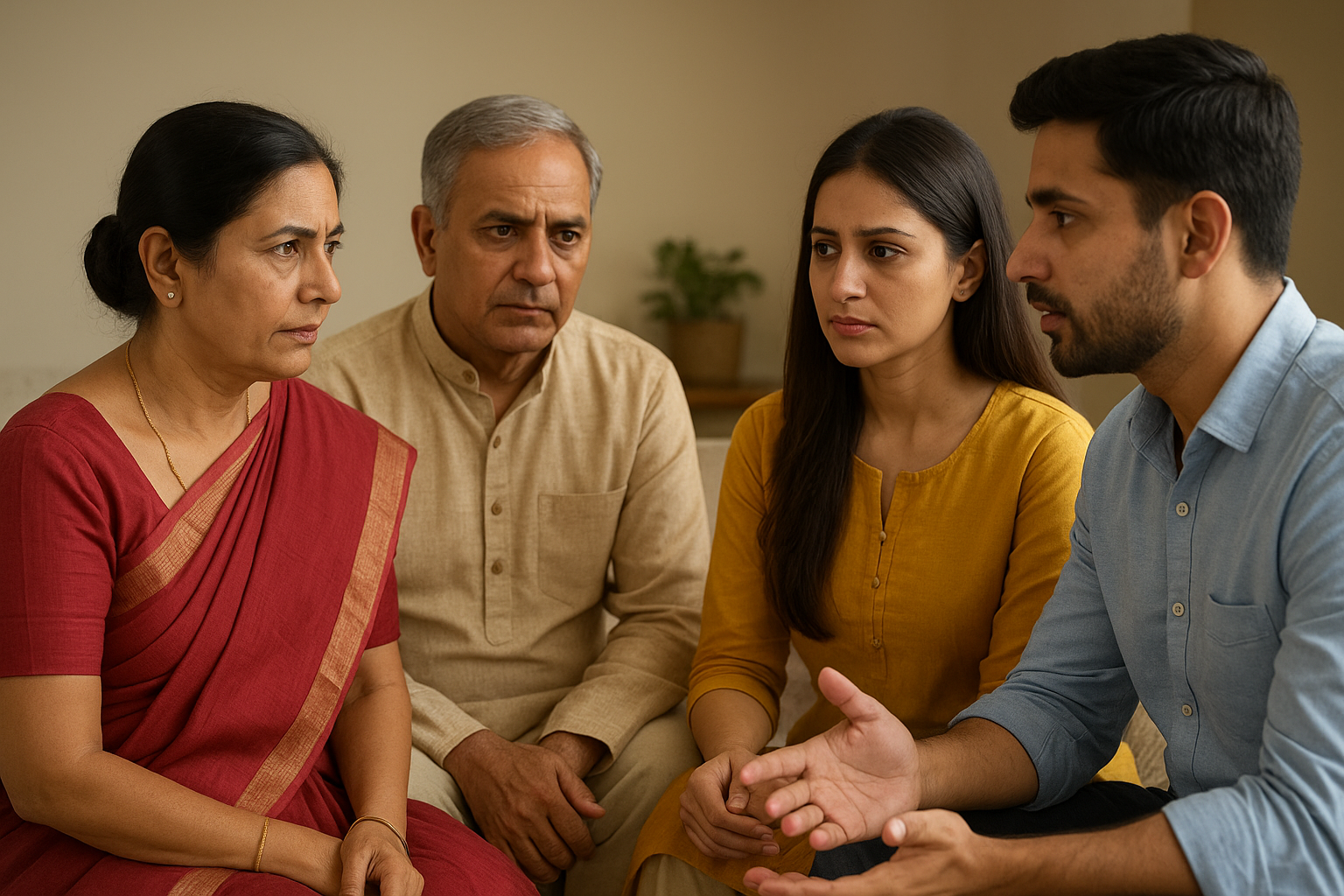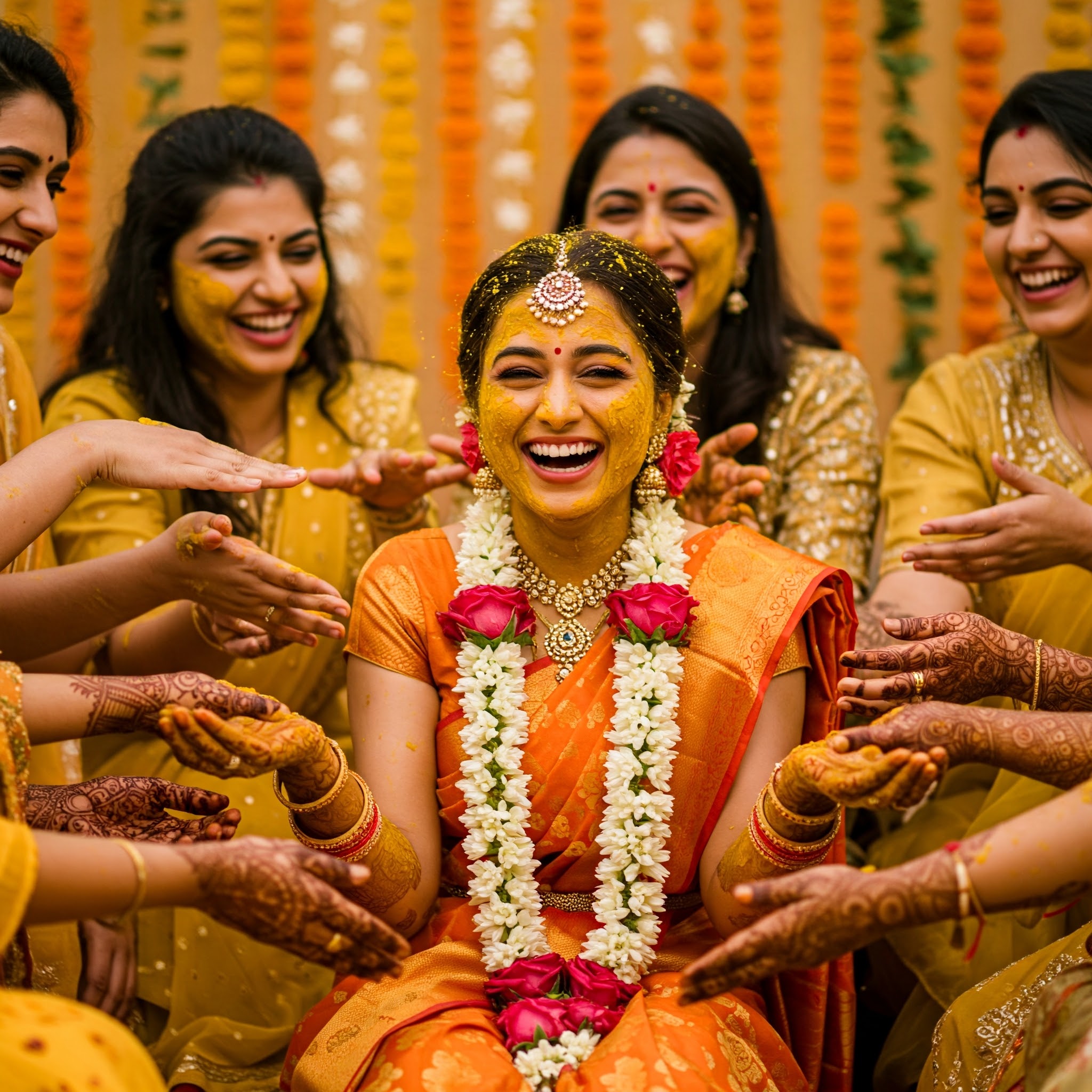
Handling Family Expectations from Both Sides
24-Sep-2025 digi shaadi
Introduction
Marriage in India is never about two people—it's about two families uniting. Right from the wedding ceremony to the selection of partner, families have an active say in bringing the union about. Though their interference is based on love, concern, and cultural sustenance, at times it becomes suffocating for couples who wish to make their own decisions.
Now with the proliferation of online matrimony sites such as DigiShaadi.com, brides and grooms are thinking of new methods to navigate between convention and individual choice. But one thing remains constant: how to deal with family expectations from both sides is an art that takes a great deal of patience, respect, and open communication.
This blog delves into common expectations, cultural mismatches, and tips on how to include parents in the process of marriage—without allowing them to dictate your decisions.
1. What Families Expect in Matrimony
Family wishes are different in different communities, but some are nearly universal in Indian weddings.
From the bride's side:
Parents tend to wish for a financially well-settled groom from a respectable background and one with similar cultural or religious values. Security, stability, and family image are huge considerations.
From the groom's side:
Families generally want the bride to be well-educated, well-mannered, and accommodating to the groom's family. Qualities such as cooking, knowledge of traditions, or even a good family name can be emphasised.
Common expectations:
Both families typically desire one who honors elders, integrates into the large family, and helps uphold traditions.
The catch? Couples these days are looking for compatibility, shared values, and individual chemistry—factors that often conflict with classic family agendas.
2. Negotiating Boundaries Respectfully
Boundaries do not equate to excluding family input—boundaries equal making space for your own voice in the marriage journey.
Why boundaries are important:
Without boundaries, families might unwittingly overstep into decision-making, and before long, the couple has minimal input. This leads to resentment in the later stages of marriage.
Examples of typical conflict areas:
-
Wedding Budget: Parents might have in mind a large, over-the-top celebration, whereas the couple would like a small, low-key wedding.
-
Location: Parents may insist on a hometown wedding, whereas the couple prefers a destination wedding.
-
Rituals: Parents may demand certain religious rituals, even when the couple is not at ease.
Setting boundaries:
-
Acknowledge their love: Begin by acknowledging their advice.
-
Use "we" language: Phrase things as a couple, rather than individually (e.g., "We would prefer…").
-
Provide compromises: Mix traditions with individual preferences—such as having a small wedding but maintaining all rituals.
Boundaries are best established early in the matchmaking, so families don't get blindsided afterwards.
3. Handling Cultural Mismatches
India's diversity is lovely—but can sometimes lead to tension in marriages. Normal mismatches are:
-
Food habits: Vegetarian vs. non-vegetarian food, or teetotal vs. drinking lifestyle. For example, a vegetarian family might be concerned with accepting a non-vegetarian bride. Couples can solve this by mutually agreeing on respectful boundaries in the home (e.g., separate cooking arrangements).
-
Caste/community expectations: Although the new generation is less rigid, most parents still prefer caste or subcaste. Being open to openness (or deal-breakers) on matrimony sites like DigiShaadi spares the conflict later.
-
Religion and interfaith marriages: These marriages can be rewarding but problematic if families are resistant. Couples should clearly communicate how future rituals, festivals, and children's upbringing will be managed before they get married.
The secret is open discussions—within your partner and with your families. Cultural mismatches don't have to tear a marriage apart; they can make a marriage richer when treated with dignity.
4. How to Engage Parents Without Losing Control
Parents feel they are the experts because of their years of experience. Cutting them out can wound their egos, but over-involvement will overpower your decisions.
-
Treat them as consultants, not the decision-maker: Let them recommend profiles or participate in first meetings, but ensure them that the final decision is in your hands and your partner's.
-
Provide them a stake in the process: E.g., parents can assist in narrowing down DigiShaadi profiles or participate in family meetings. This ensures they feel valued without compromising your independence.
-
Be strong but gentle: If they attempt to control, gently discuss your priorities as a couple. Example: "We appreciate your blessing, but we also want to establish a marriage that suits our lifestyle."
When parents feel heard and respected, they're more likely to endorse your decisions—even if your decisions are untraditional.
5. Practical Strategies for Couples
Family pressure becomes simpler to handle if you and your partner are on the same page. Some tips are given below:
-
Make a couple of decisions first: Decide beforehand on priorities—profession, place, traditions, or way of life.
-
Be honest: Avoid hiding essential facts (such as eating habits or religious tolerance). Surprises down the line cause more problems.
-
Use DigiShaadi filters: Apply search filters based on caste, religion, place, or lifestyle choice. This saves time and minimizes chances of family resistance.
-
Recruit a mediator if necessary: In some cases, an elder, counselor, or leader from the community can assist in bridging the gaps between generations.
6. The Role of Internet Matrimony in Overcoming Gaps
In contrast to conventional matchmaking, the internet platform such as DigiShaadi.com helps both the families and couples.
-
Verified profiles: Eliminate risks of misinformation, providing parents with peace of mind.
-
Advanced filters: Enable families to specify preferences about caste, profession, or locality, facilitating the search process.
-
Family-friendly aspects: Parents are involved in account setup or profile viewing, facilitating inclusivity.
-
Success stories: Several couples have achieved harmony between personal preference and family sanction through DigiShaadi, indicating that technology and tradition are not mutually exclusive.
Conclusion
Handling family expectations is the most sensitive aspect of the Indian wedding process. Parents desire security, tradition, and respect, while couples want compatibility, love, and independence. The key is not to compromise one over the other but to find an equilibrium between both.
By establishing boundaries, being frank about cultural mismatches, and engaging parents as mentors, not decision-makers, couples can build a marriage that honours both families without sacrificing their own happiness.
Thanks to such trusted channels as DigiShaadi.com, finding this balance becomes simpler—enabling contemporary Indian couples to pen love stories that value tradition and individuality equally.




